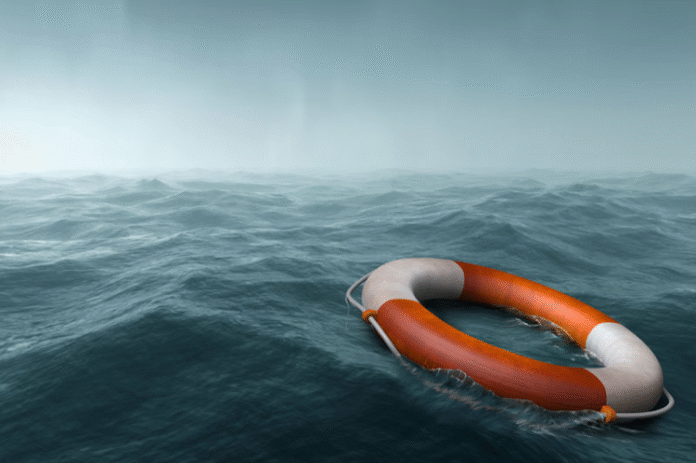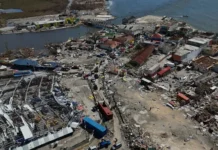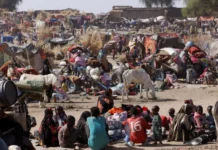At least thirteen people have been confirmed dead and dozens more are missing after a tragic boat accident in Nigeria’s north-central Niger State, authorities announced on Sunday. The wooden boat, which was carrying approximately 100 passengers, capsized on Saturday while en route to a local market.
According to Yusuf Lemu, an official from the Niger State Emergency Management Agency, 26 passengers, primarily women and children, were rescued from the waters. Search and rescue operations are ongoing, but officials warned that the chances of finding more survivors were slim.
Local official Isiyaku Akilu stated that the boat operator, who survived the incident, could not verify the total number of passengers aboard, complicating rescue and recovery efforts. “The exact cause of the accident is yet to be determined, but from all indications, it appears to be due to overloading,” Akilu said.
Adamu Ahmad, a representative of the boat drivers’ union, echoed the assessment, confirming that the boat had exceeded its capacity. He added that the vessel was a large wooden boat, and efforts were continuing to retrieve additional bodies from the river.
The incident highlights a persistent challenge in the region, where boat accidents have become a recurring tragedy. Niger State, home to three of Nigeria’s major hydroelectric dams and numerous rivers, frequently experiences such mishaps, often attributed to poor enforcement of safety regulations and the use of unsafe, overloaded vessels.
This latest disaster comes just nine months after a similar accident in the state claimed the lives of at least 60 people, most of whom were women and children returning from a religious celebration.
In a culturally sensitive move, rescue operations were temporarily halted on Sunday to allow the local river custodian to conduct traditional rituals believed to ensure a safe and “hitch-free rescue mission,” according to Akilu.
Authorities have called for stricter regulation of river transport and renewed public awareness campaigns to prevent further loss of life on Nigeria’s waterways.
Written By Rodney Mbua



















